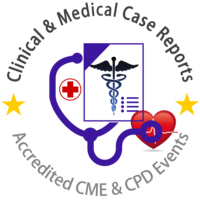
Matthew B Carroll
Ocean Springs Hospital Singing River Health System, USA
Title: Tocilizumab in the treatment of acute myocardial infarction: A review of what we know with a look to the future
Biography
Biography: Matthew B Carroll
Abstract
Statement of the Problem: Tocilizumab (TCZ) is an important biologic response modifier that Rheumatologists routinely employ in the treatment of several systemic autoimmune diseases. TCZ binds to interleukin (IL)-6 receptors, inhibits cellular activation, and mitigates inflammation by IL-6. In mid-2017 TCZ was approved by the U.S. Food and Drug Administration for its first non-rheumatologic condition, the treatment of chimeric antigen receptor (CAR) T cell-induced severe or life-threatening cytokine release syndrome in patients 2 years of age or older. With this approval and with the increasing use of TCZ off-label for other nonrheumatologic conditions such as Castleman’s Disease and its variant TAFRO syndrome, where else might TCZ be successfully utilized as treatment? Recently interesting data has been published regarding the possible use of TCZ in the treatment of myocardial infarction. This review will focus on the role of IL-6 and it’s receptor in myocardial inflammation and association with adverse clinical outcomes. Discussed are results from one animal study and two human trials have been published that studied the effect of TCZ in patients with acute myocardial infarction. Finally, this review summarizes the current data and makes recommendations for future clinical trial development in what hopefully will be a promising application of TCZ for a serious non-rheumatologic condition.

